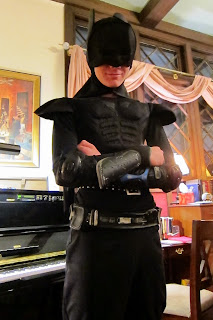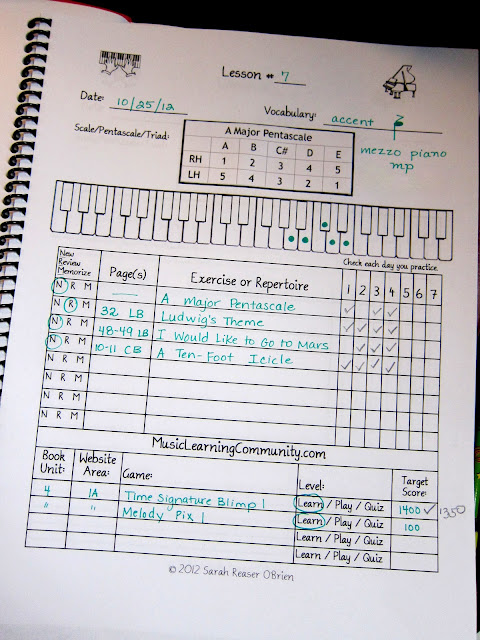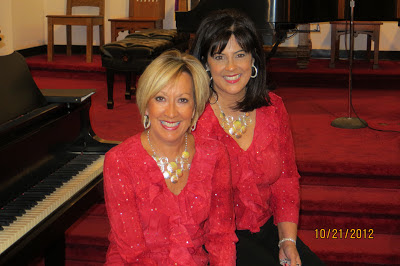This is tough post to write. But I think it's worth writing. I'm not trying to single any one person out, so I will speak in general terms that can be understood by all.
Question: Why is it that some parents seem to care more about
literally everything than about their child's piano studies? Why do these parents hold on to a spot in my studio while more eager parents sit patiently on the waiting list? And why do parents like this spend large amounts of money on piano lessons? It is perplexing and disturbing to me.
Here's why I'm taking pains to write about it...
A child is a person full of potential and promise - a person who deserves an adult in his/her life who is interested in developing that potential and providing a supportive environment for growth and positive reinforcement. In a perfect world, every child would have this kind of support, and I'm happy to say that most of my students are blessed with it.
A piano teacher is generally a caring individual who loves working with children. Like all people, her time is valuable, and she probably spends a great deal of it on professional and personal development in order to become a better teacher for her students. She thinks they deserve that.
I understand that for many adults, there is no reference point in their lives that informs them on how to be good piano parents. They didn't take piano lessons as children, so they don't get it. They might have a decent context for how to be supportive in their child's academic pursuits or in sports, but they really don't know anything about music study, so they just leave that up to the professionals. I get that.
But a lack of musical experience doesn't explain the parent who never reads his/her child's lessons notes. It doesn't explain why piano books are not brought to lessons. It doesn't shed light on why practice videos are never viewed. And it doesn't explain a complete lack of awareness that there is some role for parents to play between lessons.
Being a good piano parent involves more than writing checks and transporting a child to my studio.
Why do I get frustrated when parents fall short in this regard?
Because unless they suffer from a mental illness, a learning disability, or are going through some sort of family crisis, they ought to know better. I really don't keep parents in the dark about what I expect. If parents have no clue about what is going on in their child's lessons, it is because they don't care to know. What else can I conclude?
Consider these factors:
- A signed studio policy is required for registration. This statement outlines exactly what I expect of students and parents as well as what they can expect from me. If a parent signs this without reading it, I can only surmise that he/she does not care to know what it contains.
- Weekly lesson notes are emailed to parents after every lesson. This takes time on my part. I do it to keep parents informed so that they will know exactly what their child should be doing and how they can help that along. If a parent does not know what is in those notes, what conclusion can I draw besides the one previously stated. The parent must not care to know.
- Suppose a family's Internet connection is down, and they cannot receive email. Every child has an assignment book containing clear instructions on what should be practiced. What is there to prevent a concerned parent from consulting the assignment book at home?
If this article seems harsh, believe me - I feel it. I am questioning whether to publish it as I write. The title of the post is enticing enough to prompt a click from even the most disinterested parent, so I have hope that some good might result.
I'm not exaggerating when I say that my heart sometimes breaks for the children I teach. I have had little ones show up for piano with absolutely no idea that they missed an important event during the week. Their parents were repeatedly notified to no avail. I have had children come to lessons without once having had access to a piano since their last lesson. I have had children come to piano with books mangled to the point that they were unusable. There have been times that a child has come to lessons with such poor personal hygiene that the piano room had to be sprayed for odor and the keys wiped clean of grime before the next lesson could proceed. There have been parents who have pulled their children from a recital with just a few days' notice because of a spur-of-the-moment weekend getaway or a belief that recitals are "showing off." This has happened more than once in my studio with children who were excited about performing pieces they had worked on for weeks or even months.
Yes, my heart can be broken.
Some of you may wonder why I don't just let students like this go. In my entire time as a piano teacher, I have only let one child go. That was in a case of extreme disrespect from a parent. I was sad for the student but had to make the difficult call to end the family's association with my studio. In the vast majority of troubling cases, I keep the child because I care about him or her. As disturbed and overlooked as I sometimes feel by the actions of a parent, I continue working with the child in order to be a supportive adult in his/her life.
But I don't want to be a hero. I want parents to open their eyes and see the time of their children's youth slipping through their fingers. I want them to put other things on hold in order to make the most of this important moment in their child's life. I want parents who have never given their kids' piano lessons a single thought beyond paying the tuition and dropping them off to show an interest. Seriously...any interest.
It is inevitable that some of the best parents I work with will wonder if I am talking about them. Please know that if you show even a small amount of consistent interest and concern and are even somewhat aware of what your child does each week in piano, I am not referring to you in this post.
I sometimes find myself at a loss for what to do. I recently confided in another piano teacher about one of the dear children I teach, and this teacher actually cried. I suppose my goal with this post is to get a few parents' attention.
Let me close with this request. If you clicked on this post out of curiosity and are convinced that you could do better as a piano parent, please do not post a humorous comment or email me and ask if I am writing about you. Instead, start reading your child's lesson notes. Make sure your child has an instrument to use at home. Try to pay attention. I know you're busy, but I also know you love your child. It's not too late to do better, so just do it.































































